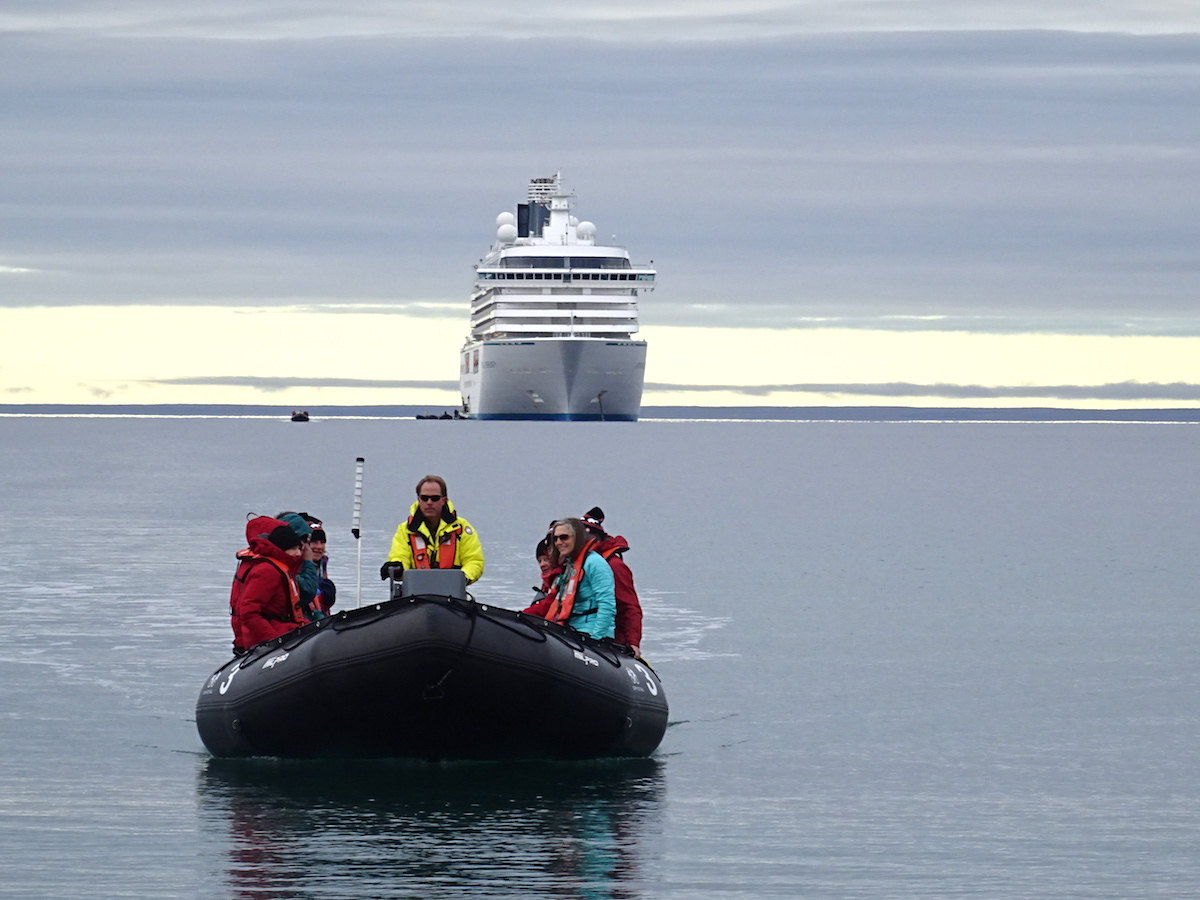Ban on Arctic cruise ships and pleasure craft extended
“This is the right and responsible thing to do,” federal transportation minister says
The Crystal Serenity is seen docking off Cambridge Bay, Nunavut, in August 2016. Today, Transport Minister Omar Alghabra announced that the ban on cruise ships and pleasure craft in the Canadian Arctic has been renewed for another year and will be in effect until Feb. 28, 2022. (File photo)
Updated Feb. 5 at 11:15 a.m.
The temporary ban on cruise ships and pleasure craft in all Canadian Arctic waters has been renewed for another year, the federal government announced, calling it a “responsible” step to prevent the spread of the coronavirus.
The initial cruise ship ban began in March 2020 due to concerns about the spread of COVID-19. It was later followed by a ban on most pleasure craft in May 2020.
Those bans were scheduled to end on Feb. 28 of this year but will now stay in effect until the end of February 2022.
“Temporary prohibitions to cruise vessels and pleasure craft are essential to continue to protect the most vulnerable among our communities and avoid overwhelming our health-care systems,” federal Transport Minister Omar Alghabra said in a news release Thursday.
Passenger vessels carrying more than 12 people are still banned from entering Arctic coastal waters, including Nunatsiavut, Nunavik, and the Labrador Coast. Cruise vessels carrying more than 100 people are still banned from operating in Canadian waters.
“This is the right and responsible thing to do,” Alghabra said.
With the bans renewed, public health authorities will be able to continue focusing on the issues such as the vaccine rollout and new COVID-19 variants, the release states.
The restrictions don’t apply to pleasure craft used by local Arctic residents or communities for essential transportation, subsistence fishing, harvesting and hunting.
Passenger vessel operators who break the ban can be fined up to $1 million, sentenced to 18 months of jail, or both.
Those who don’t comply with the pleasure craft ban can be fined anywhere from $5,000 per day for individuals to $25,000 per day for groups or corporations.
Last year a New Zealand-based yacht sailed through the Northwest Passage in defiance of the ban.
While the decision to ban the vessels from Arctic waters was made with public well-being in mind, the ban will again mean that Nunavut artists are going to take a financial blow because there will be fewer tourists arriving in the territory.
Between July and September 2019, 12 cruise ships embarked on 21 separate voyages in Nunavut waters, according to a government report on tourism.
The estimated impact of this activity was at $848,394 in 2019, not including passenger spending in communities. That’s up from $376,016 in 2018, when ice conditions kept many cruises out of the region.
If the COVID-19 pandemic improves enough to allow for the safe resumption of activities, the transportation minister has the ability to remove the ban before it expires.
This article has been updated to include a more recent estimate of the cruise industry’s economic impact in Nunavut in 2019, provided by the Department of Economic Development and Transportation after publication.





Send in the subs to patrol the passage
You mean OUR subs? You know, the one’s that are not safe to actually go underwater? The one’s that have never yet ventured into the arctic? The Americans and the Russians have real submarines. Maybe we can contract them.
Seriously, though – The arctic cruise ship business is but an very small part of the total cruise ship industry which, at present, is not in very good shape anyway. And the economic impact to northern communities ranges from non-existent to insignificant.
So, who cares?
Cruises Do not bring Much un the communities , nor to any port cities
Louisa, what are your sources for your statements?
B.C might disagree with you. In fact have already suggested they will lose substantially from the ban.
Pond Inlet stands to lose between 250 to 300k. not chump change for 1600 people.
Good decision. 2 for 2 for the federal government for the last decisions around the north.
Predicting this ban will help toward slowing down climate change. Stop breaking ice then warming will slow down.
Cruise ships are not ice breakers. They rarely need the assistance of Coast Guard because they plan their voyages carefully to avoid areas of ice. Icebreakers are more often tasked to assist cargo ships which are an essential service in Nunavut.
I very much doubt that breaking a narrow passage through ice, which quickly closes in again, has any measurable affect on climate change.
Nevertheless, these cruise ships are non-essential and have almost no benefit to Nunavut communities.